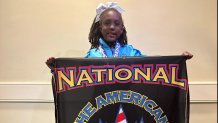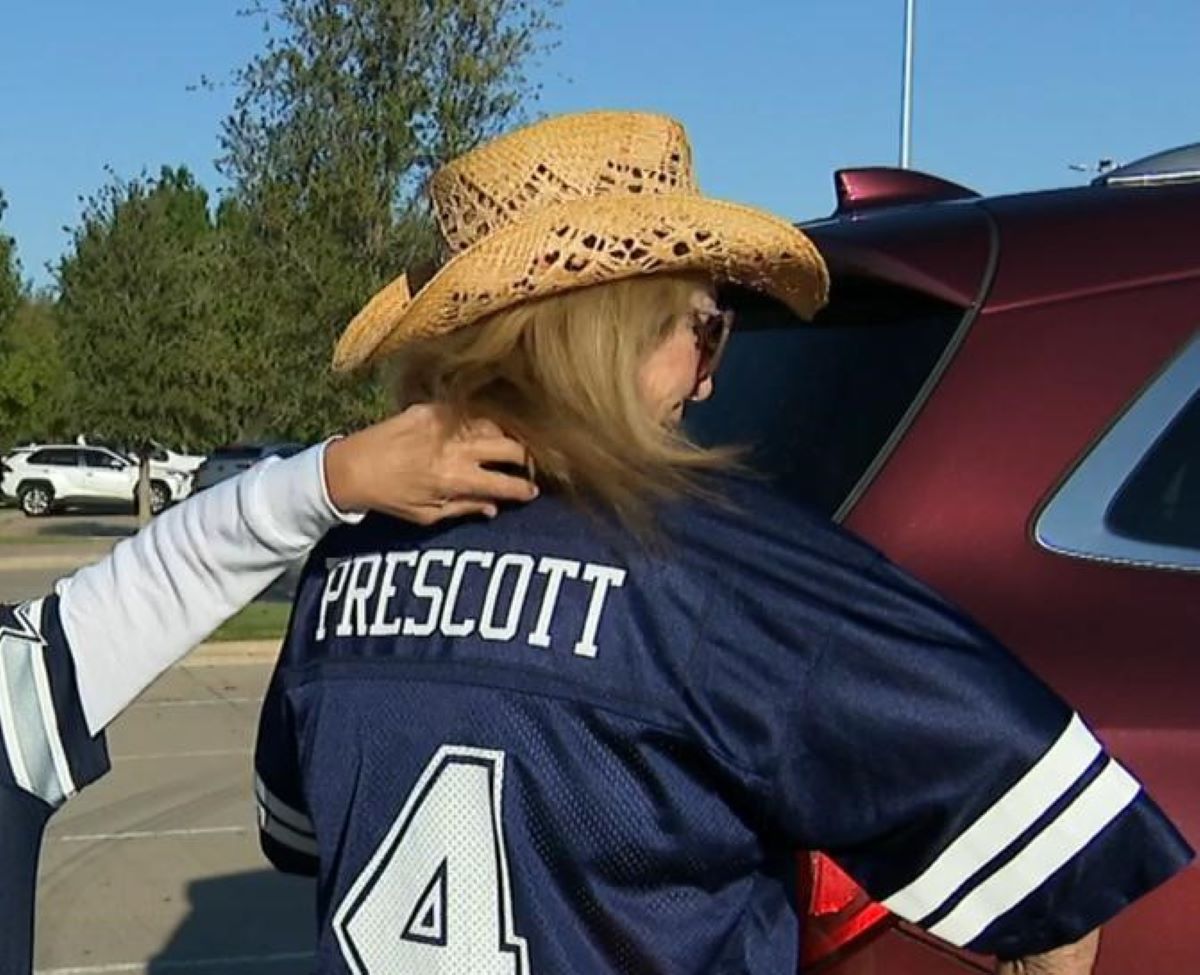A North Texas mother is suing an elite cheer program, claiming the gym is discriminating against her daughter, who is deaf.
The gym’s operators say the allegations are false. Nine-year-old Ari loves cheerleading.
“I love to cheer because it’s my favorite sport,” Ari told NBC 5.
For three years, she’s competed with Plano-based Cheer Athletics, one of the largest cheer and dance facilities in North Texas.
Get top local stories in DFW delivered to you every morning. Sign up for NBC DFW's News Headlines newsletter.
“To know where she’s come and watch her do that is beautiful,” said her mother Alicia Mims.
Ari is deaf and lives with a cochlear implant. Over the last year, she says understanding her coaches has become more difficult.

“I can’t do it, and I get in trouble, and I get frustrated,” Ari said.
Local
The latest news from around North Texas.
Her mother said Ari needs an American Sign Language interpreter to relay the coach’s directions during challenging and potentially dangerous routines.
In a lawsuit filed on behalf of Ari, her mother alleges Cheer Athletics has failed to provide an ASL interpreter for every practice and competition. When an interpreter is provided, the lawsuit alleges the gym has placed “significant restrictions” on their actions, limiting where they stand and what they sign, “thereby missing learning opportunities and safety warnings otherwise available to her hearing teammates.”
The lawsuit claims the gym is violating Ari’s rights under the Americans with Disabilities Act.
“There are a lot of emotions that you go through when you know your baby is capable and I know what my child is capable of doing,” said Alicia Mims.
A spokesperson for Cheer Athletics tells NBC 5 the claims are false and provided the following statement:
"We are heartbroken to see months of hard work and commitment by the Cheer Athletics staff to help a little girl safely participate in cheerleading ultimately result in a lawsuit that we were first notified of tonight by the media.
The claims made are categorically false. Cheer Athletics spared no expense conferring with experts in the field. We spoke with the child’s doctor, who said a roger device was the correct accommodation for this athlete in the allstar cheer environment. We immediately purchased the roger device at our sole expense. The mother refused the roger device accommodation and demanded a translator. A translator was then provided at our expense.
Our investment in this athlete surpasses tens of thousands of dollars and the accommodations provided have changed the method and manner of instruction for this athlete and the team. We have advocated for this athlete to ensure she remains an integral part of her squad.
Cheer Athletics has decades of success with athletes with hearing loss succeeding to the highest levels in our program- including winning world championships- and will continue to provide a safe and inclusive solution- to the best of our financial ability- for all allstar cheerleaders."
Attorney Lia Sifuentes Davis is the director and professor at the Civil Rights Clinic at the University of Texas Law School.
She also spent a decade working at Disability Rights Texas.
“It’s very rare that actual litigation is filed about these issues,” Sifuentes said.
“The onus is on the business to provide effective communication, but the Americans with Disabilities Act does not necessarily spell out the specifics and the minutia of how to accomplish that effective communication,” Sifuentes said.
She says litigation involving ADA-related cases can often involve determining whether the request is reasonable and whether it places an undue burden on the business.
Ari’s mother says she wants her daughter to have the same experience as her teammates and get back to enjoying the sport she loves.
“I just feel proud of myself,” Ari said.



